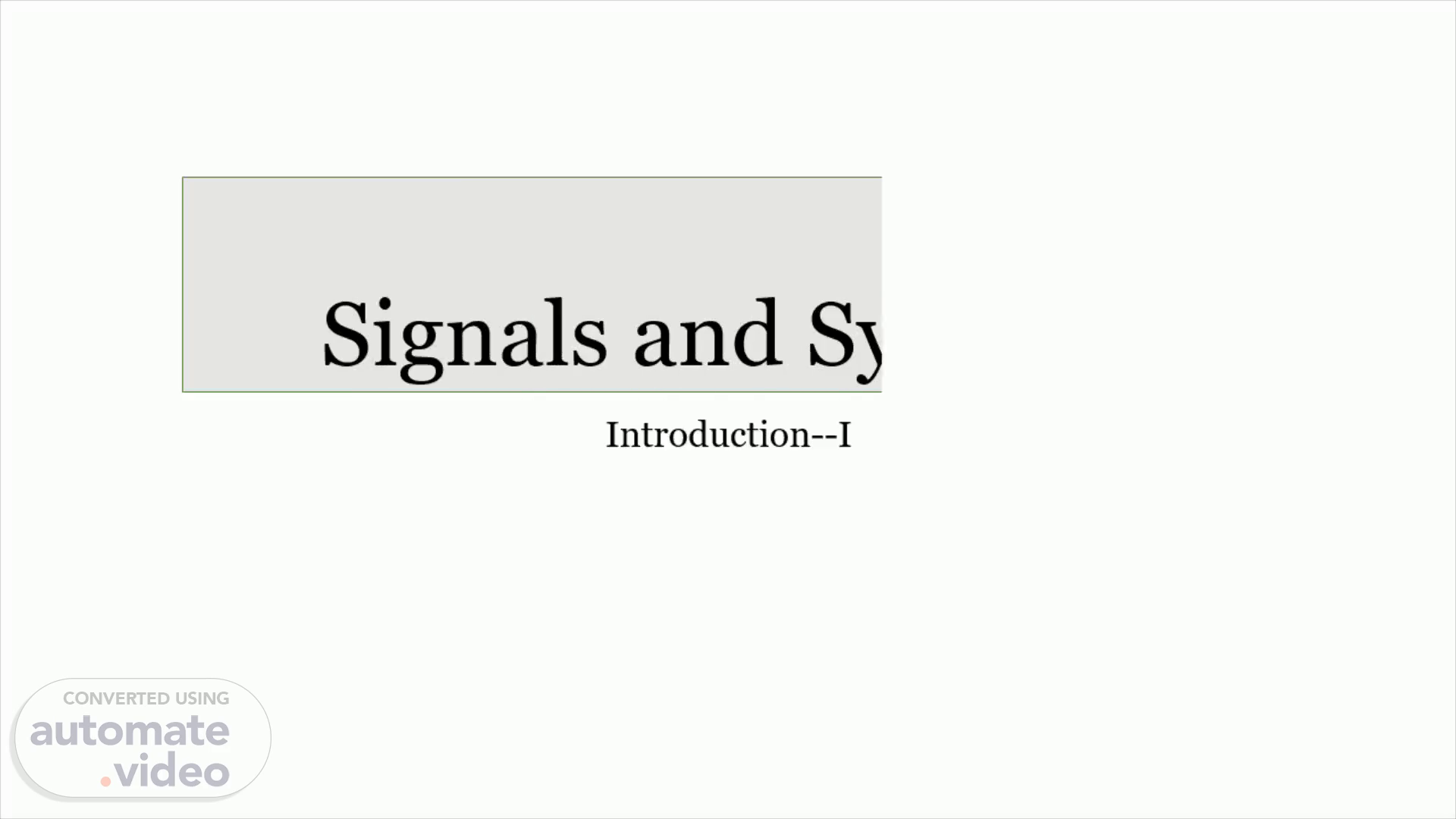Page 1 (0s)
Signals and Systems. Introduction- -I.
Page 2 (6s)
Digital Control System. Digital Controller DAC ADC Plant Sensor + -.
Page 3 (22s)
Continuous and Discrete. T he inputs and outputs of electrical, mechanical, chemical and biological processes are measured as functions of time with amplitudes expressed in terms of voltage, current, torque, pressure, etc. These functions are called continuous-time signals , and to process them with a computer they must be converted into binary sequences—or a string of ones and zeros that is understood by the computer . In a digital computer, differentiation and integration can be done only approximately, and the solution of ordinary differential equations requires a discretization process..
Page 4 (53s)
Signal Representation. 4.
Page 6 (1m 10s)
6. Simulink Model. Ts=O.1s t sin 10 ZOH Ts = 0.05s ZOHI.
Page 7 (1m 18s)
Derivative and Forward Finite Difference. Derivative operator: Forward finite difference operator:.
Page 8 (1m 28s)
Check-1. The forward finite difference is Coinciding with the derivative..
Page 9 (1m 37s)
Check-2. The forward finite difference is The derivative is.
Page 10 (1m 46s)
Check-3. The forward finite difference is The derivative is.
Page 11 (2m 0s)
Conclusion. 11. Number of samples, n. Number of samples, n.
Page 12 (2m 12s)
12. Simulink Model. Is Sample Time 0.01 Au Ts = 0.01s 0.02 Scope 0.01.
Page 13 (2m 20s)
Derivative and Backward Finite Difference. 13.
Page 14 (2m 28s)
Check-4. 14.
Page 15 (2m 36s)
15. Matlab Program. Matlab Program. Ts = 0.1 ; %% forward finite difference for n=0:N-1, x1 = 4*cos(2*pi*(n+1)* Ts ); x2 = 4*cos(2*pi*n* Ts ); del_x1(n+1) = x1-x2; end yf = del_x1/ Ts ; %% backward finite difference for n=0:N-1, x1 = 4*cos(2*pi*n* Ts ); x2 = 4*cos(2*pi*(n-1)* Ts ); del_x2(n+1) = x1-x2; end yb = del_x2/ Ts ;.
Page 16 (2m 55s)
Integration and Summation. 16. n=0. n=1. n=9. high base.
Page 17 (3m 5s)
17. Check-5. Check-5. abstract. Upper bound approximation.
